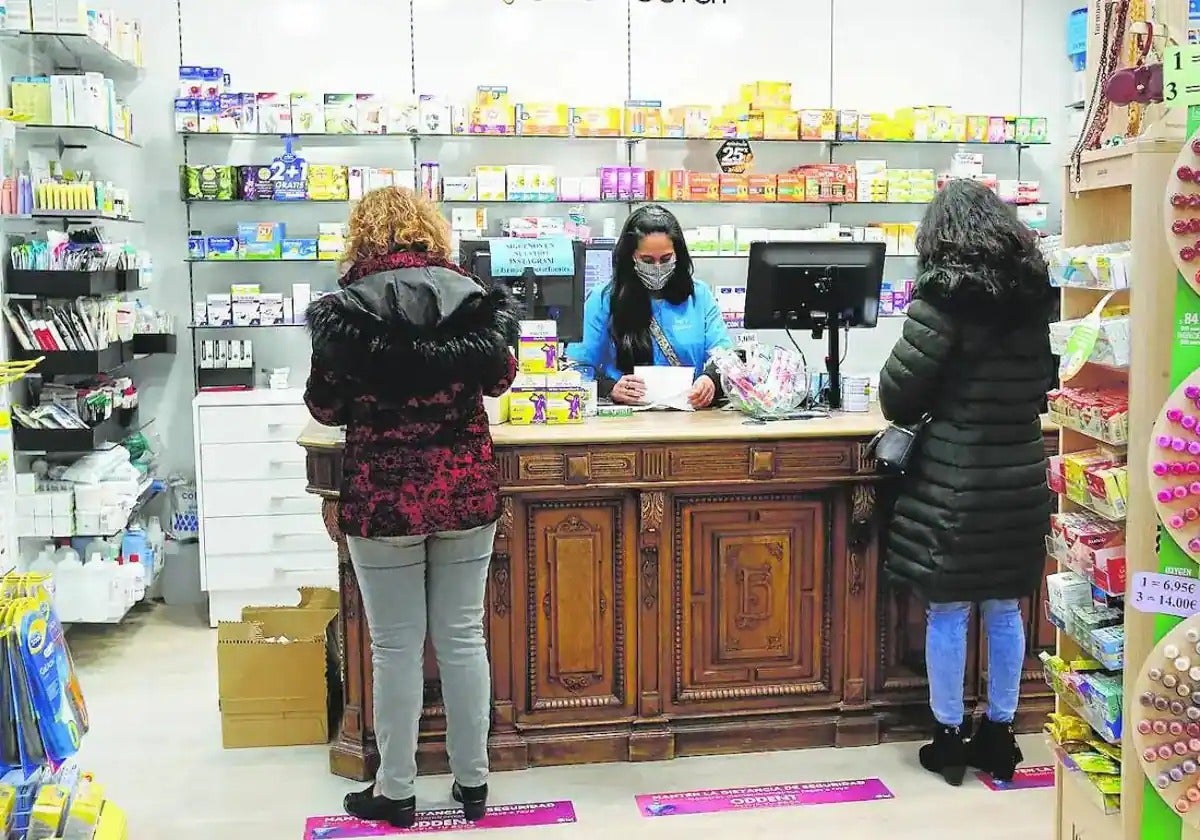Andalucía's health service backtracks and will not force pharmacies to prioritise sales of generic drugs
Spain's National Markets and Competition Commission (CNMC) issued a statement some weeks ago asking the SAS "not to discriminate" against branded medications
The addendum signed between the Andalusian Council of Official Associations of Pharmacists (Cacof) and the Andalusian Health Service (SAS) that obliged pharmacies to sell generic medicines and to give 5% of the turnover to SAS has lost its footing in the market, or at least a part of it has. In brief, SAS has backtracked on the obligation placed on pharmacists to sell this type of medicine, although the 5% payment will remain in force.
This controversy originated a few months ago at regional level, but then the issue ended up crossing borders. Last April SAS and Cacof signed an addendum, which consisted of a modification of the current agreement that set out the conditions for how pharmaceutical services would be run via pharmacies in Andalucía. The modification came in two parts. Firstly, to promote the dispensing of generic medicines in pharmacies when prescribed by active ingredient - for example, a patient is prescribed 'ibuprofen', not an actual brand name. Secondly, for pharmacies to collaborate with SAS by making a small financial contribution to sustain pharmaceutical provision in Andalucía against sales of this type of medicine. This meant that pharmacies were being obliged to sell generic drugs and contribute 5% of the turnover from these sales to SAS.
However, Spain's National Markets and Competition Commission (CNMC) issued a statement some weeks ago asking SAS "not to discriminate" against branded medicines in pharmacies and warning that it was making this request to "avoid filing an administrative appeal with the [Spanish] National Court." In this way, the commission was requiring SAS to annul the addendum since, in its opinion, the addendum "prioritises the sale of generic medicines in pharmacies to the detriment of branded medicines", pointing out that the agreement "violates" the principle of non-discrimination of the LGUM (articles 3 and 18) - a free market trading law in Spain.
Although divided by this move (it should be noted that this addendum was also signed by Cacof), the pharmacists understood that this decision still obliged them to give up 5% of their monthly turnover for sales of generic medicines in favour of SAS and that this decision generated "a significant economic disadvantage".
Following this communication from the CNMC, the health ministry for the region has taken a step back and has withdrawn the obligation placed upon pharmacies to sell the unbranded drugs. When asked about this issue, the SAS acknowledged that, given the possibility that point 2 of the addendum could "be misinterpreted or give rise to confusion", suggesting that it implied an obligation for pharmacies to dispense generic drugs in preference to branded drugs, "it has been agreed to comply with the CNMC request and remove point 2 of the original addendum from the revised addendum, which stated that pharmacies will push to dispense generic drugs when drugs are prescribed by active ingredient."
However, the ministry continues to maintain that the addendum in question was not "casting out" the pharmaceutical laboratories that supply branded medicines, nor was it imposing a prioritisation of unbranded medicines over branded medicines.
Divided opinions
Part of the controversy on this issue stemmed from internal divisions. For SAS, prescription by active ingredient and the use of generic drugs "provides professionals and patients with a common terminology, which allows the unequivocal recognition of medicines." Although this addendum was signed with the agreement of all eight professional associations, many pharmacists did not share the need for this agreement. Some professionals consulted by this newspaper did not agree that they should pay this five percent of their turnover to SAS, but others were in favour of it because they thought it could be a good way to support the system, as this money could be invested in research, placing Andalucía's pharmaceutical laboratories at the leading edge of drug-related research and development.
Perhaps the most important detail to note in this matter is the profit margin. All consulted sources acknowledge that the profit margin of pharmacies is higher for sales of generic drugs, even when you subtract that five per cent.

